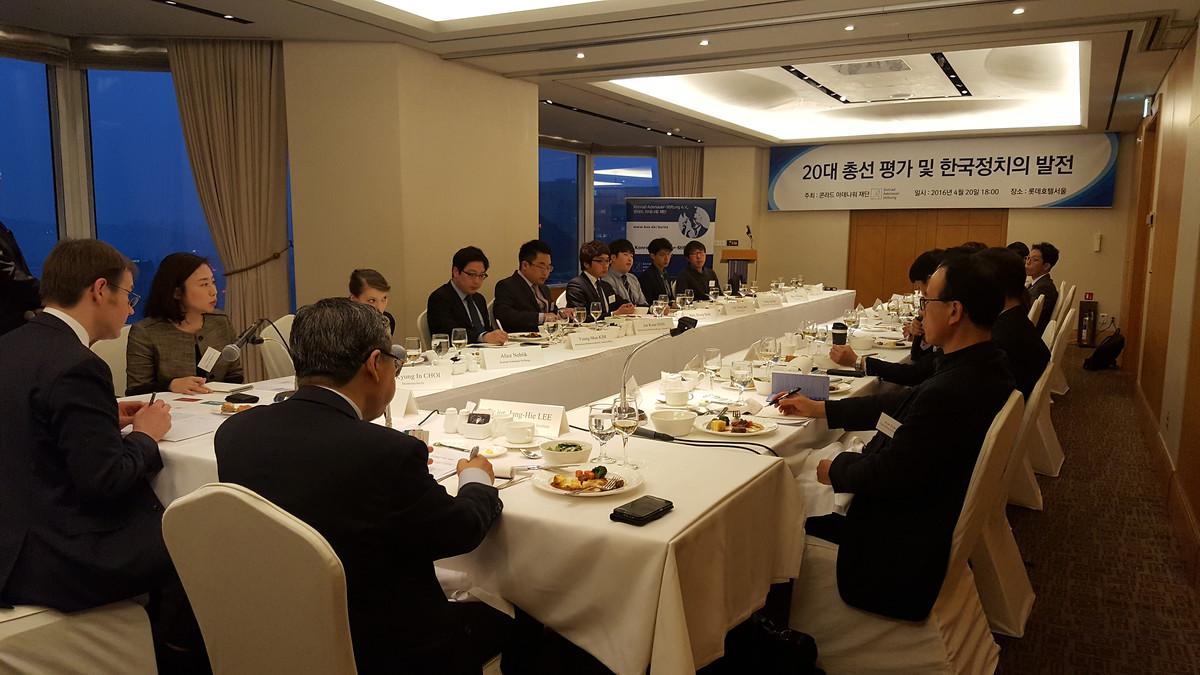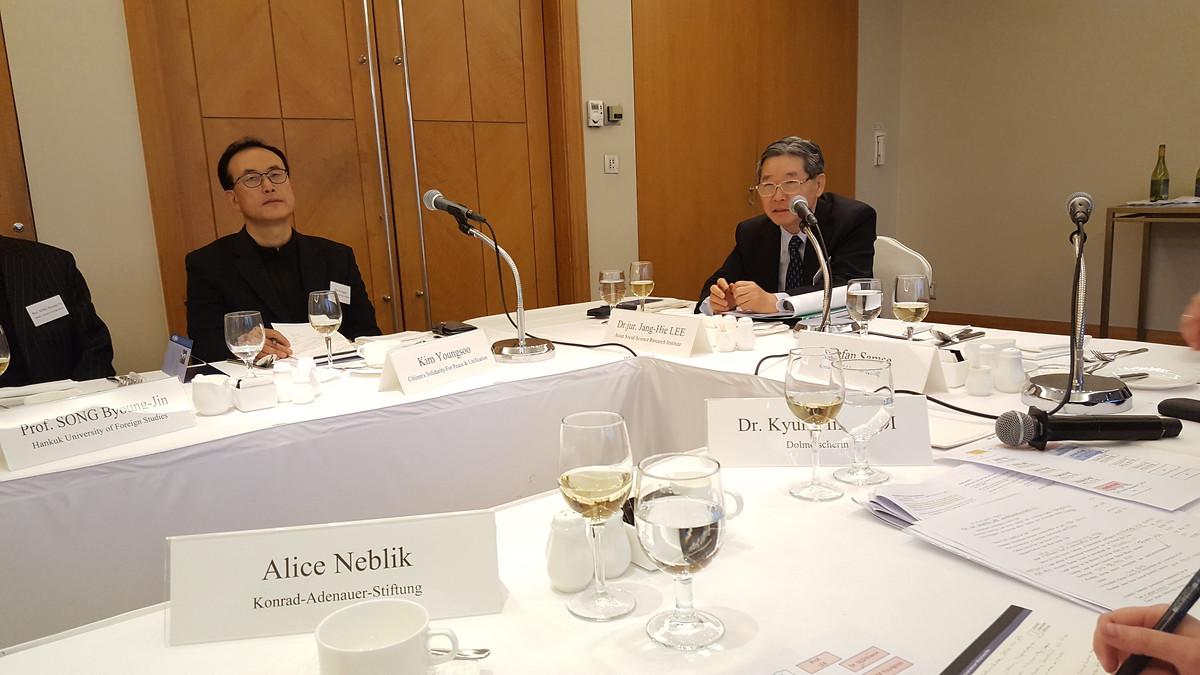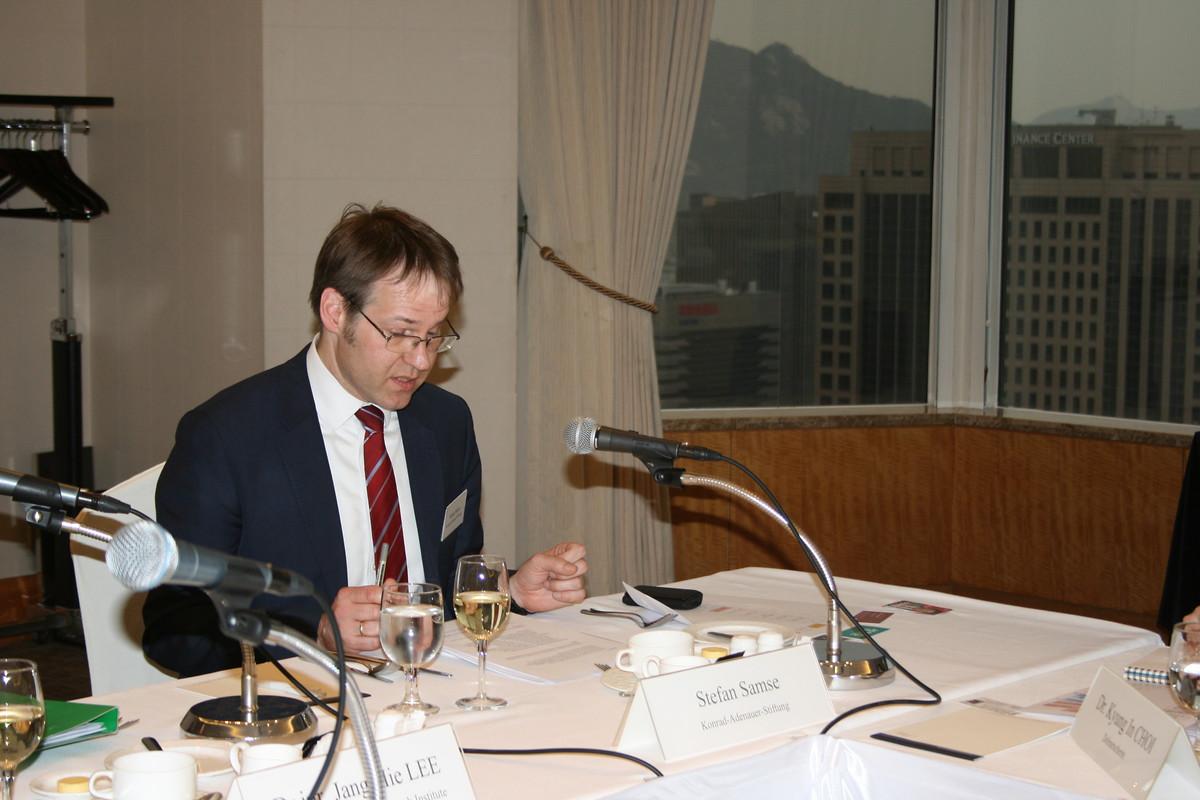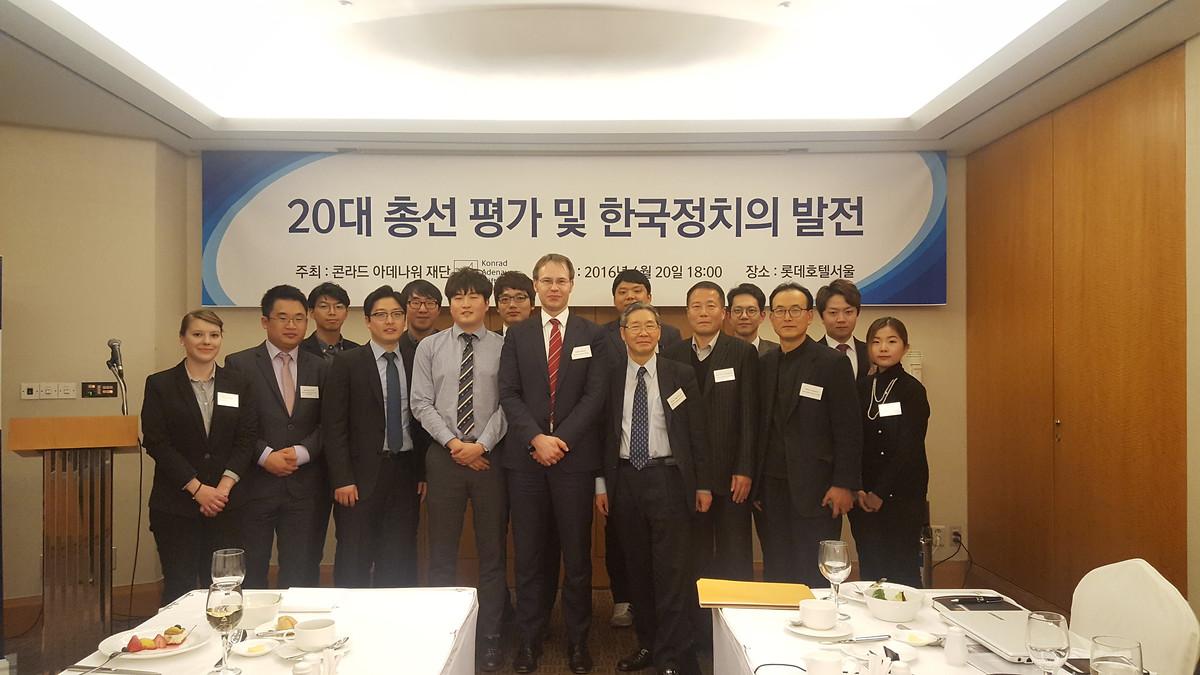Initially, the discussion ranged from the issue of increased voter participation in the election especially from the younger generation to a noticeable shift away from regionalism in voting patterns, as well as thoughts on how to better encourage the younger generations to actively participate in politics. Furthermore, the future relations with North Korea, the strongly deviant election outcome from projections of the original surveys and the occurrence of cross-voting patterns during this election were also among the issues discussed by the participants.
Regarding possible reasons for the Saenuri loss, representatives of Saenuri Party concluded that voters might have been disappointed by the inner disputes revolving around the nomination of candidates preceding the election held in full public view. Additionally, the Saenuri Party had failed to keep many of its goals set for the legislature period such as economic democratization and improvement which may have contributed to increasing voter speculation about the Party’s political competency.
The Saenuri representatives also identified the absence of an election program that directly addressed younger voters as a key factor that contributed to their defeat in the election. Representatives of the Minjoo Party noted that they also suffered losses in the election contrary to their presumptions about their traditionally loyal support base in the Honam region. The Honam voters instead had cast their votes for the newly established People’s Party. Despite these losses, the Minjoo Party won parliamentary seats in a number of traditional Saenuri strongholds. It has been noted that this election finally gave birth to a new voting pattern in some of the places with the strongest regional voting preferences. This pattern was especially evident in the city of Daegu which had been a Saenuri stronghold for a long time but elected a Minjoo candidate in this election.
A lack of focus on the younger generation of voters by all major parties and the rising unemployment rate within the age group of 25-30 was also addressed during the discussion. This particular age group was assumed to have cast their votes primarily for the newly founded People’s Party in hopes for a change and as a result of frustrations with the traditional parties as stated by the participants. With regard to future participation prospects of the younger voters, Mr. Samse, head of the KAS Korea Office, put forward the German joint youth organization “Junge Union” as an exemplary case.
In the following discussion, the future cooperation and strategic importance of the three parties in parliament, especially regarding the presidential election in 2017, the speculations about the UN Secretary-General Ban Ki Moon becoming a potential presidential candidate, and the question of the potential of a third-agent involvement in areas of inter-Korean dialogue such as the KAS offices, were debated.
All in all, the representatives agreed that a future cooperation among the different parties will be of special importance as well as paying attention to the opinions of citizens especially the younger voters. The new constellation of a three-party balanced parliament could turn out to be an advantage when it comes to furthering the development of Korean politics and also useful in challenging standardized categorization of voters into fixed camps such as “conservative” or “progressive” as is often done today. The opinions concerning Secretary-General Ban Ki Moon and his potential candidacy in the presidential election, a third-agent involvement in inter-Korean dialogue were divided. However, German assistance on matters regarding the potential reunification of the Korean Peninsula was perceived as highly useful due to Germany’s own historical experience with the matter.
Ultimately, it can be noted that the cross-party discussion and the entertaining moderation by Prof. Lee during this event provided some very informative insights and incentives for all participants. As a concluding statement, Prof. Lee expressed his hope for a change in South Korean politics that would prospectively enable the younger generation to contribute their interests and needs more effectively.










